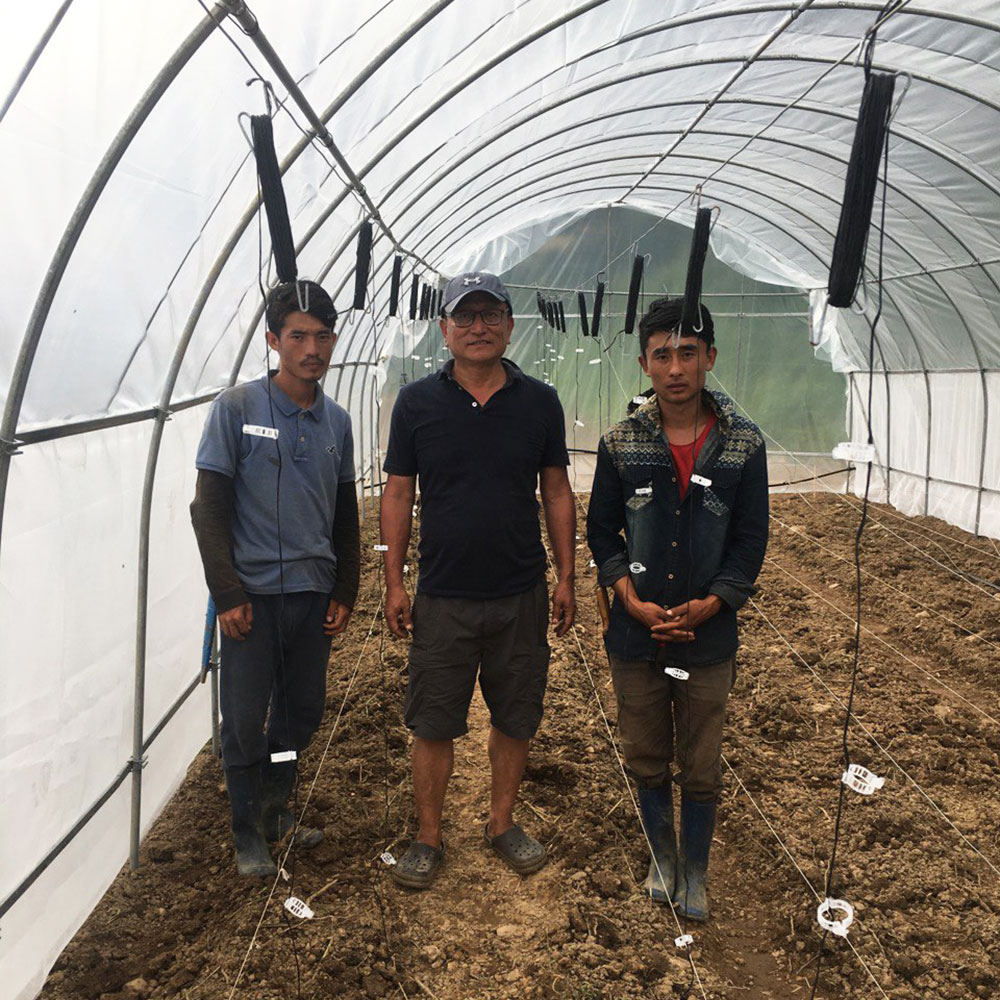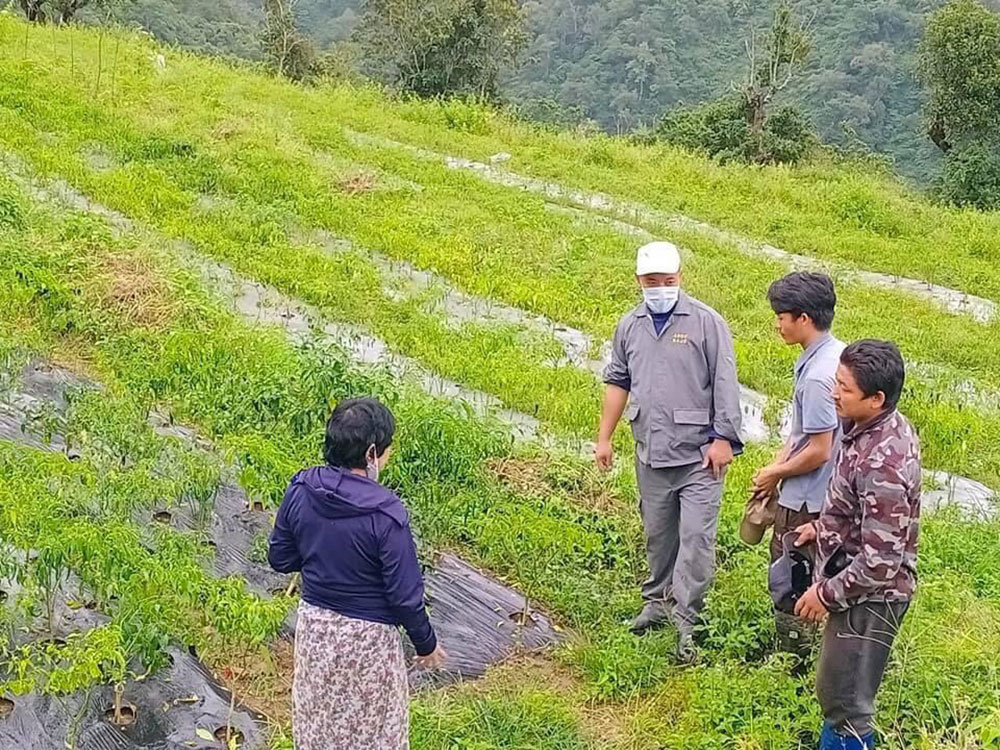Nim Dorji | Trongsa
Two university graduates, Sonam Dorji and
Kuenzang Namgay, from Dangdung village in Langthel, Trongsa, started commercial farming in May of this year and have employed six youths.
After graduating from Sherubtse College in 2019, the two friends stayed in Thimphu for a while looking for jobs. Without much luck in their job hunt, they decided to return home to their village and venture into farming.
They revived and developed 11 acres of fallow land and started commercial farming in their locality.

Sonam Dorji (right) and Kuenzang Namgay with an RDTC official
Sonam Dorji said that he had intended to take up farming since his school days, but could not, as he did not have a friend to partner with in the venture. “Sangay and I grew up together. He knew about my plan, so we discussed it and decided to do it together.”
They submitted their proposal and an assurance letter to the gewog, as gewog officials were suspicious that they might abandon the work if they found a different job.
The Langthel gewog administration and agriculture office helped them develop the land and provided them with electric fencing materials.
The Rural Development Training Centre in Zhemgang supported the farm with materials for three greenhouses, a water tank, and seeds.
Even with all of the support, the friends said starting commercial farming was not easy.
Sonam Dorji said since both of them had been unemployed and did not have any savings, they faced challenges in paying labour charges.
Furthermore, because the land had been left fallow for more than 15 years, bushes and other vegetation had grown there, and they had to hire workers to clear the land and cut fencing poles. “We borrowed about Nu 50,000 from friends, and our parents helped financially and physically.”
According to Sonam Dorji, their parents supported them with about Nu 197,000. “We did not avail any loans from financial institutions.”
The friends said they are aiming to produce organic products, accelerate socio-economic development, help achieve food security, and create employment opportunities.
They also said they intend to promote traditional crops and uplift the rural communities, as well as extend the scope of an agricultural farm as a learning solution.
The farm will focus on producing vegetables in all seasons, and will grow onions, chilies, and tomatoes.
Kuenzang Namgay said that they want to make the farm a model in the community and help youths stay in villages.
This year, they grew maize on five acres, chilies on more than one acre, cabbage, broccoli, and cauliflower. They cultivated wheat and are preparing to cultivate potatoes and garlic in the coming months.
They will be focusing on off-season production and also have a plan to add value to the unsold vegetables.
According to Sangay and Sonam, they are planning to start a dairy farm as well.
They said if youth like them have interest and courage, nothing is impossible.
Kuenzang Namgay said that as farmers’ children, they don’t have problems working on the farm, but have problems availing services from the government offices.
He said that although the government assured that they would help youth taking up farming, it is difficult to even hire a machine. “The process takes a long time, and when we have to wait for so long, it discourages us.”
He claimed they have to follow long procedures, even to get a power tiller. “Influential people can avail the services in hours. It takes weeks for our application to reach relevant officials.”
Edited by Tashi Dema


